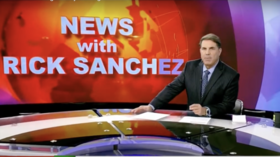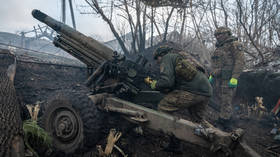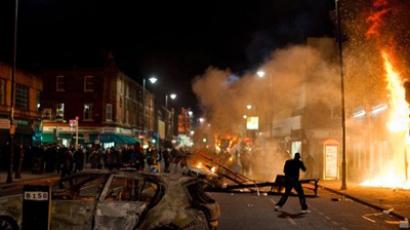“Zero tolerance” will have “zero effect”
This week a split opened up between police and top politicians in Britain, following several days of rioting and looting throughout the country. PM David Cameron eventually came up with a “zero tolerance” approach to street crime.
Cameron slammed the force for their poor handling of the crisis, even turning to a prominent US law-enforcer, the former "supercop" Bill Bratton, for advice on preventing street violence.On Saturday he voiced his pledge of a “zero tolerance” approach in an interview with The Sunday Telegraph. The same rough tactics were originally introduced in the US and see even minor offences prosecuted vigorously to send out the message that no law-breaking will be tolerated."We haven't talked the language of zero tolerance enough, but the message is getting through," he said.The use of water cannon, if necessary to quell violence, was approved shortly after the rioting started. As another preventive and coercive measure, the Cabinet has threatened the possible disruption of social messaging networks, for they have been widely used by rioters to co-ordinate their action.John Rees, a political activist from London, believes that any draconian measures will be “zero-effective”.“This isn’t something that can simply be batoned off the streets with water cannon and plastic bullets. It isn’t something that can be banned, it isn’t something that we’ll get rid of by imposing draconian prison sentences,” he told RT. “If that happens, you can come back to the Pembury Estate [the main site of the riots in London] in a month or two months, or six months, or a year, and absolutely nothing will have changed, and therefore the fundamental causes of [this week’s] disturbances will remain.”The activist explains that there is an untold story behind Mark Duggan’s shooting, which itself is only “a tip of an iceberg”: “When you know there’ve been 300 deaths in police custody over less than a decade, you can see why people do not trust the police.”“Giving the police more powers, as even the police have recognized, to be fair, won’t solve the problem,” John Rees concluded.The unrest was triggered by the fatal police shooting of 29-year-old Mark Duggan, and the ensuing peaceful protest which turned violent. Protesters started smashing shop windows and setting fire to cars and buildings, leading to widespread copycat violence.Over 2,000 arrests have been made so far in connection with the disorder. And with the police locked into a blame game with politicians, groups in local communities took it into their own hands to reclaim the streets from looters.















